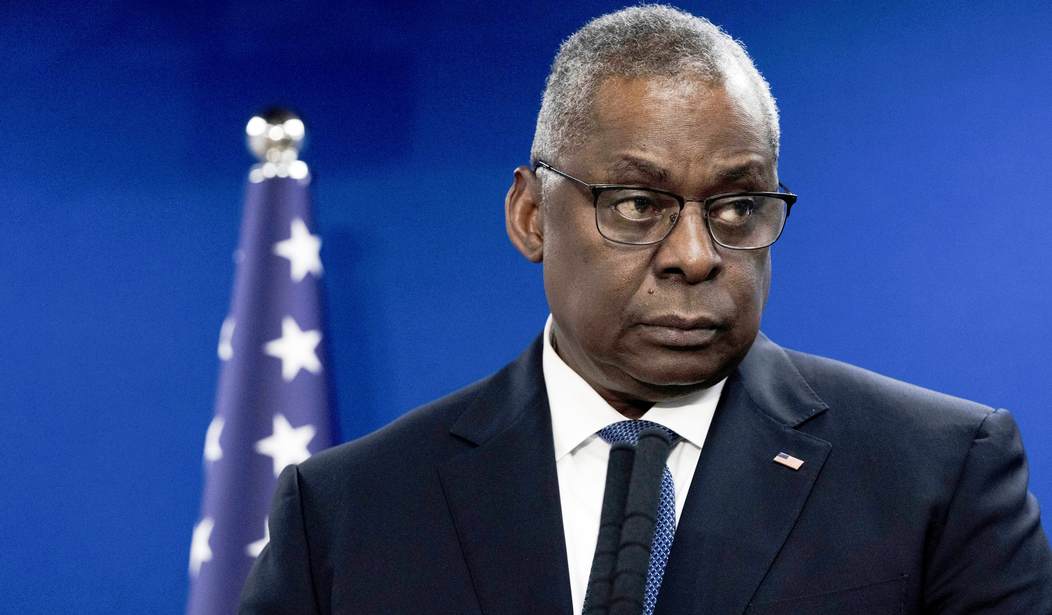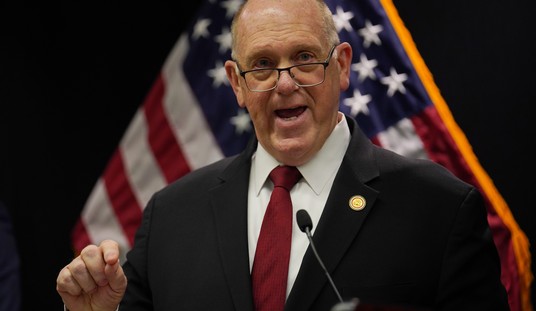As it turns out, Secretaries of Defense don't have the authority to undo plea deals already accepted by military courts. Who knew? [Raises hand.]
A military judge has reinstated the plea deals that Lloyd Austin attempted to vacate three months ago. The unnamed judged ruled that the Department of Defense lacks the authority to undo court orders in these tribunals, and to remove their convening authority ex post facto. That will allow the masterminds of 9/11 to spend the rest of their lives in super-max facilities rather than face the death penalty:
A military judge ruled on Wednesday that plea agreements between the alleged 9/11 conspirators at Guantanamo Bay and the US government are “valid and enforceable,” a defense official told CNN – roughly three months after Defense Secretary Lloyd Austin revoked the deals.
The ruling allows for the plea deals to go forward and could mean the men will eventually be sentenced to life in prison and avoid death sentences.
The US reached a plea deal with alleged 9/11 mastermind Khalid Sheikh Mohammed and two other defendants accused of plotting the attacks in July after more than two years of negotiations. But just days later, Austin revoked the plea deals and yanked responsibility from the convening authority for military commissions who runs the military courts at Guantanamo.
Doesn't Austin have the authority to revoke that? The court apparently agreed, but any agreements and pleas accepted by the court while it had convening authority would still be valid:
“Part of his ruling was not only are they legal and enforceable,” the defense official told CNN, “but that [Austin] was too late in doing that.”
In other words, Austin closed the barn door after the colt had already bolted. This seems like basic legal doctrine, too. Otherwise, any adverse ruling could be undone ex post facto by firing the courts that issued them. It's so basic that it raises the question of why Austin intervened in the manner he did, as well as when he did.
Will Austin appeal this decision? The New York Times asked, but Austin's office had no immediate comment. The man in charge of military commissions told the Times that they were considering it. But one has to wonder whether their hearts would really be into an appeal:
Prosecutors and the office of the secretary of defense had no immediate comment on whether the government would appeal. Rear Adm. Aaron C. Rugh, the chief prosecutor for military commissions, said his team was “discussing next steps.”
“We are reviewing the decision and don’t have anything further at this time,” said Maj. Gen. Patrick Ryder, the Pentagon’s press secretary.
In New York, Anthony D. Romero, the executive director of the American Civil Liberties Union, said that the judge, in his 29-page ruling, “rightly recognizes that Defense Secretary Austin stepped out of bounds. We are finally back at the only practical solution after nearly two decades of litigation.”
Far be it from me to offer today's ACLU as the voice of reason, but Romero has a point. I raised this same issue in September, when the judge first entertained the motion from defense attorneys to rule Austin's actions invalid. The cases against the 9/11 masterminds have become an absolute trainwreck ever since the Supreme Court forced the Pentagon to abandon the traditional military tribunals used against war criminals since America has fought wars:
But the hard truth is that these cases became impossible the moment that the Supreme Court decided that military tribunals in wartime were unconstitutional, an absurdity given to us by Justice John Paul Stevens. Congress then had to act, and insisted on grafting civil procedures onto a process that a regular military tribunal was far better equipped to handle. That decision got made within a few years of 9/11, when we all should have realized the folly of dealing with a war by terrorists as a law-enforcement problem. Had we remained firm in our resolve to treat war like war, these defendants would have ceased to exist two decades ago, and that result would have been more just than anything that has followed since.
I wondered at the time, too, whether Austin knew his order was invalid and just wanted to spare Joe Biden the political blowback of a deal that everyone secretly wanted:
[S]uppose Austin knew he'd acted too late to actually stop the deal? And suppose that was the plan all along? That would allow the cases to come to an end, and give Joe Biden (and now Kamala Harris) enough plausible deniability to shrug off the political consequences. Or at the very worst, the buck could stop with Austin and leave Biden-Harris hands looking clean.
If that's the case -- and that is really only sheer speculation, mind you -- then the timing is impeccable. How fortunate that this ruling came to light the day after the election!
Anyway, whether this was a master plan or just incompetence (and which would be worse, really?), it still doesn't change the fact that the Pentagon is never going to get a trial completed for these terrorists and mass murderers. They are going to die in prison of natural causes one way or the other, thanks to our inability to distinguish between war and crime. They may as well die in oblivion rather than as causes celebres, in some long-forgotten cell in a dreary concrete fortress that no one bothers to think about.








Join the conversation as a VIP Member